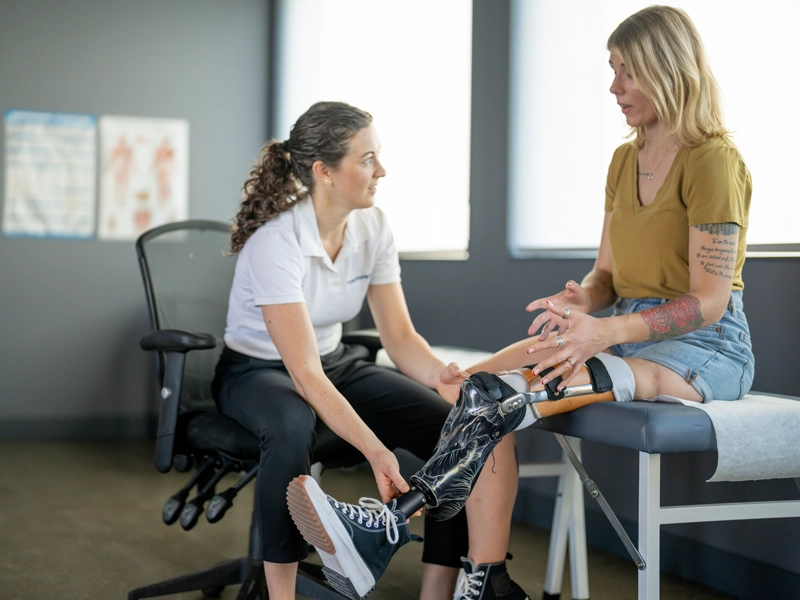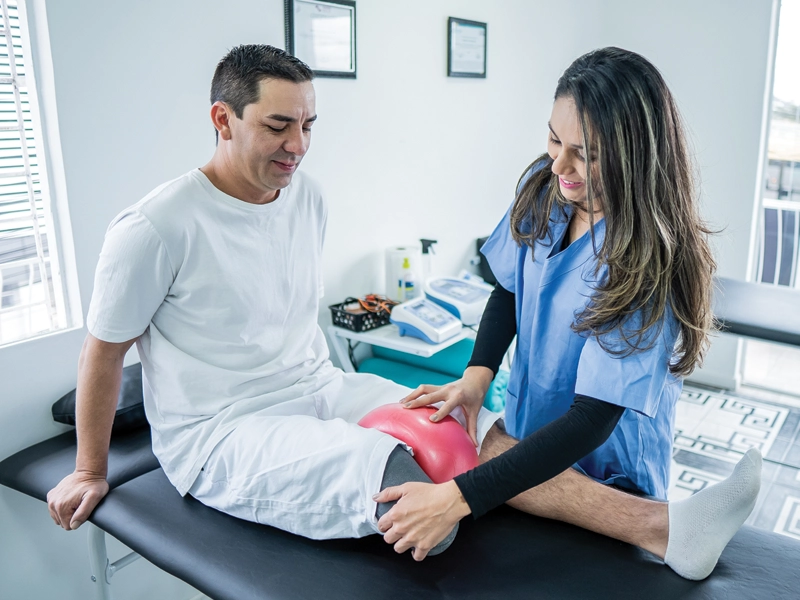Amputation
Restore strength and confidence following an amputation through our specialized programming. Designed around your unique needs, our treatment programs can help you improve daily functions regardless if you are pre- or post-prosthetic.
Why Choose Us for Amputation Rehabilitation
Our Amputation Program is offered by a comprehensive, multidisciplinary team of professionals with specialized training, experience, and credentials for the management of medical and functional needs.
Our team strives to provide effective and evidence-based care related to the specific needs of the amputee population by initiating a treatment plan as soon as the patient is medically stable. The program is tailored to restore strength and confidence, regain function and mobility, prevent pain complications, improve wound healing, and prepare them to return home independently or with assistance from family members or other care providers.

Our Rehabilitation Team
Our therapists work hand-in-hand with doctors and nurses who specialize in amputation rehabilitation.
Members of the team may include:
- Physical therapists
- Occupational therapists
- Prosthetists
- Orthotic/adaptive equipment specialists
- Case managers/social workers
- Nutritional counselors
Our care team meets regularly to monitor patients' progress and their response to treatment. Discharge planning begins upon admission and involves the patient, caregivers and the entire rehabilitation team to ensure a smooth transition home or to another level of care if appropriate.
Levels of Service
We offer intense inpatient services in an environment that provides daily physician oversight and 24-hour rehabilitation-focused nursing care for patients considered to be medically stable and physically able to begin a comprehensive rehabilitation program consisting of 15 hours of therapy over the course of a week.

Pre-prosthetic Rehabilitation
Our pre-prosthetic rehabilitation programs focus on strengthening the muscles necessary to support and be successful with the prosthetic device and training patients about residual limb care.
Post-prosthetic Rehabilitation
Once a prosthesis has been fitted, our therapists work with patients to learn to use the prosthesis and how to incorporate it into their activities of daily living.
Program Services
Our amputation rehabilitation program helps improve daily functional skills.
Physical therapists focus on:
- Improving overall mobility, health and independence
- Restoration of functions that can be restored or adaptation to new levels of function
- Walking safely either independently, or with a temporary or permanent walking aid such as crutches or a walker, and how that need might change with or without use of a prosthesis
- Transferring to/from different surfaces
- Complete strength and range of motion exercises
- Balance and coordination improvement
- Using an artificial limb (prosthesis)
Occupational therapists focus on:
- Safely performing activities of daily living such as eating, dressing, grooming, bathing and homemaking
- Caring for the residual limb
- Assessing necessary environmental adaptations for work or home
Treatment delivery and intensity of service is determined as part of the individualized plan of care and typically includes a combination of 30- to 60-minute therapy sessions provided throughout the day by physical and occupational therapy. Speech therapy is included if clinically appropriate. Social workers and case managers may work with patients to adjust to emotional issues that may arise as they move forward after an amputation, as well as assist in procuring equipment and services that the patient might need in order to return home.
Therapeutic Goals
Our hospital uses standardized improvement measures to track our patient outcomes and ensure that we are providing competitive services that are best suited to assist our patients in making the most gain possible during their therapy.



